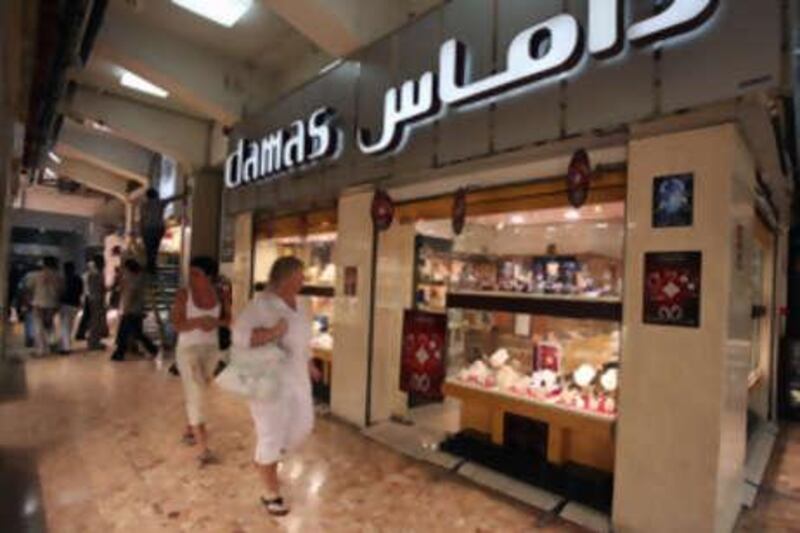If "no guts, no glory" was the guiding investment principle around the country during much of the previous decade, it has in recent months been replaced with a new operative phrase: "Better safe than sorry." According to a new survey, UAE residents are much more tentative than their counterparts in Hong Kong and Singapore in regard to their investment decisions at the moment. The favoured asset classes in this part of the world are the safest ones - namely, cash and gold - while investors here remain generally wary of anything with a whiff of risk, including equities and bonds.
The percentage of UAE residents who were sitting out of the market entirely - 22 per cent of respondents - was twice the number from the other countries. "The strong message is that [UAE residents] are more cautious than our cousins elsewhere in the region," says Matt Waterfield, the general manager for the Middle East with Friends Provident International (FPI), the insurance company that commissioned the survey.
Mr Waterfield, who is based in Dubai, says the survey indicates that local residents are the least optimistic among those surveyed, but most see the market improving within the next six months. "We believe it will be a slow burn, but we do think that things will start to get better," he says. Notably, there are currently slight differences between the emirates as to whether the Middle East is still an attractive place to put their money.
About 46 per cent of Abu Dhabi residents said they were happy to invest in the Middle East, while only 31 per cent of Dubai residents said the same thing. Also significant were the differences in the perspectives of the wealthy compared with the rest of those surveyed. UAE residents who have more than Dh200,000 to invest are much more inclined to put their money in equities and are more likely to pursue mid- to long- term investments.
The survey is the first publication of what the insurance company says will be a quarterly index of investor attitudes. Unlike some reports, which compare perspectives in the UAE with those from investors in the US and other developed countries, this one has the potential to be more instructive because it juxtaposes investors here against residents in other developing nations in the local region.
Of the 758 people who were surveyed, only 14 per cent were Emirati, so the responses mostly reflect the attitudes of the expatriate population. The report also found that UAE residents were much more reluctant to seek financial advice from established sources, including insurance agents, financial advisers and even financial publications. Instead, they rely heavily on friends and family. Overall, 57 per cent of UAE residents said friends and family were their top source of financial advice, while 9 per cent said they were not interested in seeking any advice at all.
Mr Waterfield says the data supports anecdotal evidence that many locals are wary of financial professionals because of previous bad experiences. It also may explain why residents are more inclined towards investing in cash and gold instead of more sophisticated products that could provide better returns over the long run. In the US, UK, India and many other countries, there are tax advantages available for people who set money aside for retirement or insurance plans and those incentives often drive people to make sensible financial plans.
As the UAE does not levy any taxes, many residents do not recognise the need to proactively establish their own arrangements. Mr Waterfield says other industry research shows that while life insurance penetration rates in most of the developed world are at about 9 per cent of GDP, it is about 1 per cent in the UAE. "The challenge we have as an industry is to convince people of the benefit of insurance and investments without any tax benefit," he says. "We are all transient expats here - at least most of us are - and we are here to create wealth. There is very little pension here from employers and none from the Government for expats.
"The responsibility is on us as individuals to take control of our future finances." Elsewhere in the report, 34 per cent of UAE respondents said this was a bad or very bad time to invest in equities, while 32 per cent said it was a good or very good time to do so. There was more of a consensus on gold, with 49 per cent saying now was a good or very good time to buy the precious metal against only 25 per cent feeling the opposite.
The most popular investment instruments in the survey were savings plans, with 49 per cent reporting that they felt this was a good or very good time to invest, followed by government bonds (41 per cent) and mutual funds (40 per cent). The least popular options were investment-linked insurance (32 per cent) and corporate bonds (26 per cent). FPI speculated that huge losses suffered by many investors in Singapore and Hong Kong when Lehman Brothers went under contributed to the negative sentiment towards corporate bonds.
Among all of the countries included in the survey, Singapore residents were found to be the most optimistic, while Hong Kong features the largest number of "risk takers". Investors in the UAE and Singapore share similar attitudes towards risk, with more than a third saying they prefer low-risk, low-return products. breagan@thenational.ae






